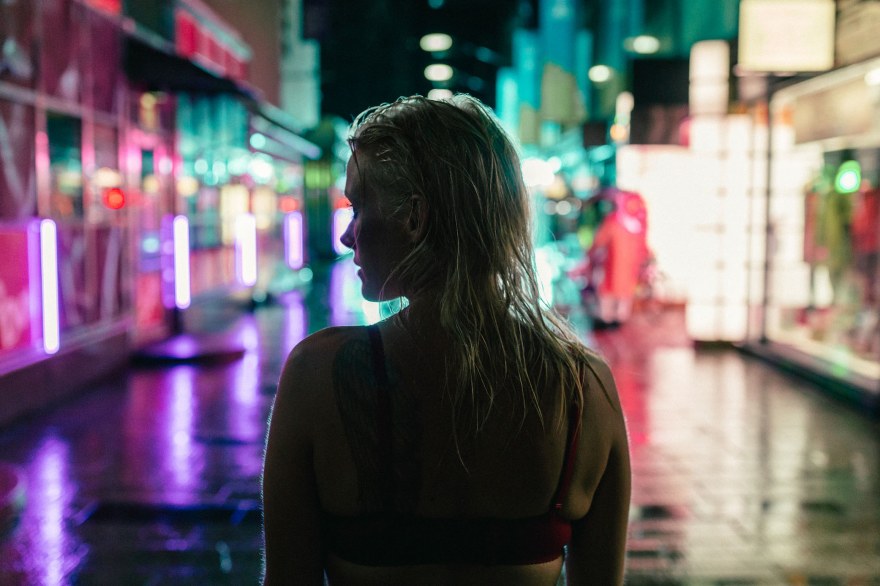Lunch with Kaksi Ruumista Rannalla [Two Bodies on a Beach]
Interview with Anna Paavilainen, director of Kaksi Ruumista Rannalla [Two Bodies on a Beach]
Where did you get the inspiration for Kaksi Ruumista Rannalla from? Is there any link to dreams?
During the Camerimage festival 2016, I saw the film Raging Bull which I hadn’t seen for a long time, and I started to think about how my life and perspective to it would be different if cinema history and the big film classics would have been told by and about women: about sisterhood, mother-daughter relationships, women communities, female idols who are not what you thought they are and they betray you, etc. Laura (the other scriptwriter and the lead actor) and I decided to write a film about (female) side characters who start to talk and demand “wants and needs and flaws” in classical cinematic situations. If cinema is said to be a shared dream we watch together, who are the ones who build our collective dreams? And how much does what we see in films affect our sense of reality, ourselves, others, the subconscious? We wanted to make the viewer see a collective dream in familiar mindscapes, where women are taking the lead with their needs and flaws.
Did you want the film to make a loop, as a cycle repeating? And why?
The structures are built by repetition. And the change is made step by step. If you want to make a difference (in your life, in the world, etc.), it takes time. Maybe you mess it up the first time like the younger woman here in the film, but next time you may be wiser when you have more awareness and experience.
How much are you interested in male-female interactions and do you have further projects on these issues? And regarding the theme of patriarchy?
I have written a theatre monologue Play Rape (2014) about the issue of the representation of sexual violence on stage and I have written and directed a short film with the same name (Play Rape, 2019) on the same subject. I have dealt with gender issues in my other previous works as well, and the patterns and structures of patriarchy also in a humorous point of view. Now I’m working on a feature film, Kikka, about a Finnish erotic singer in the 1990s, when the time wasn’t ready for her pussy power. So in that sense, it is about how women are seen in patriarchy. I’m also working on a TV series about today’s high-school boys and their emotions and pressures in sex.
How did you cast the actors and which directions were they given for this film?
The lead actor, Laura Birn, is my classmate from Theater Academy and we wrote the film together. The older woman, Rea Mauranen, is a Finnish actor who I admire a lot and we have acted together at the Finnish National Theater, she played my mother. Most of the other actors are also well-known in Finnish cinema, so the choice of cast has a meta comment for Finnish audience. Of course they are amazing actors as well. I wanted to give love to all the characters because nobody’s evil and often in real life there are no good guys and bad guys. Everyone is trying their best. I asked them to give as much love and understanding to their characters as possible.
Would you say that the short film format has given you any particular freedom?
Yes, absolutely. The short format lets me go surreal and play with different genres.
What are your reference works?
Scriptwise: Eternal Sunshine of the Spotless Mind, Inception, Adaptation. Filmwise: there are seven different genres in this short film, where each of it had a lot of film references, which me and the cinematographer could play with from Tarkovski to Michael Bay films.
I’m sorry for asking but do you know your last name means “not ugly” in French?
Hahaha, no, I never thought of that. I can a bit French actually.
Kaksi Ruumista Rannalla [Two Bodies on a Beach] is part of Lab Competition L1.









